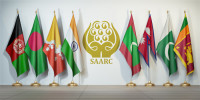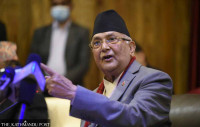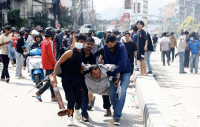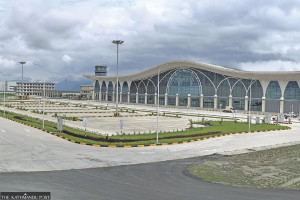Opinion
Trust and disaster
Helping people in natural calamities involves two things—the politics of helpers and the politics of receivers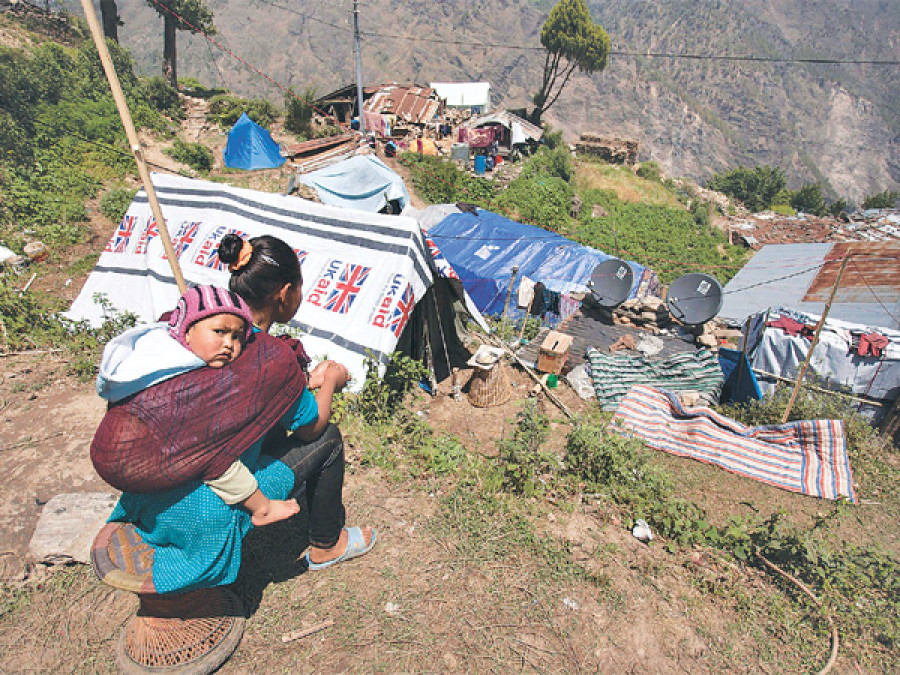
The government’s failure to act promptly and effectively and the circulation of discourses about ethics and trust have created a series of aftershocks in Nepal in the aftermath of the massive earthquake of April 25. The double whammy of the May 12 aftershock further increased uncertainty. Confusion already entrenched has deepened, and minds getting stronger to cope with the effects of disaster have become further weakened.
To add to all these, uncanny cinematographic effects involving people, countries, military presences, choppers, and hoppers—a somewhat bizarre combination of things to happen—generated stories that did not have any salubrious effect on the minds of the traumatised. Those who suffer in natural calamities do not necessarily oversee what is going on over their heads, because they rely on the good side of human nature.
The world showed its readiness to help. Helpers landed within a day or two of the happening and started their operations. But the Nepal Army youths had already started their courageous and necessary operations. They were seen braving falling buildings to rescue trapped people. Similarly, hundreds of Nepali youths had reached the sites with whatever means they had, a process that continues even today. A landslide triggered by the May 12 quake killed the leader of one such team, a Tribhuvan University lecturer, Madhav Bhusal. Nepali youths are doing greatly exemplary works, as are some of the trained foreign rescue workers, who had come with necessary accoutrements and skills.
Trust and cooperation
The massive earthquake of April 25 and the subsequent aftershocks have thus continued to play havoc. The casualty figures are rising. Personal accounts, visual representations and descriptions of the appalling tragedy are overwhelming. Getting traumatised and struggling for survival are not two different things, as they result from the same disaster. However, this tragedy has foregrounded a few topics with great stress on the question of trust and cooperation between Nepal, or the Nepal government and the countries and agencies who want to support relief efforts for people affected by the disaster. I would like to raise some of these issues and question what may have been going on imperceptibly so far in this regard.
The question of trust and cooperation raises some important theoretical issues that I do not want to raise here. But what must be mentioned is that helping people in a state of natural calamities involves two things: the politics of the helpers and the politics of the receivers. Those who come to help, as studies show, come with their own logic of how relief should be carried out. Some major academic texts written after calamities like the Indian Ocean tsunami of 2004 that hit Sri Lanka and India are eloquent proofs. The Indian operation was also called exemplary. But aid amounting to billions of dollars collected from public and private donors played the most decisive role. In other words, relief operations became possible principally because of that aid. The amount was largely or initially transparent and predictable. The receivers also knew the source of the aid. But things often do not work in that manner. Disaster aid, as some critics maintain, is transformed into power and profit liability. Pious and noble feelings are turned into a name game with some claiming to do more than others. A certain rivalry becomes involved. Apart from the aid givers’ politics, local politics and polities also seek to use the aid money to create a power and profit regime. That money thus transformed into a power commodity is used to create political influence and keep hold of political groups. Stories say that tsunami aid and politics—local and regional—was used for such purposes.
There is no doubt that the extensive disaster caused by the recent earthquakes will require aid. Nepal has to rely on a great deal of support from humanitarian organisations and donors. Blame games start in the use of such aids. So much so that even the victims and their behaviours are blamed for some situations. But I hold a clear view in this matter. In Nepal, the common people, who have always borne the brunt of human and natural atrocities, have never committed any mistakes. They are the greatest and most patient receivers. That is also why perhaps they are often cheated, with others making profit in their names. In the limited space of my column, I want to put forth the following observations and questions.
Aid channels
The not-yet-resolved question is who should channel the aid coming from agencies and donors. The government has said that all aid should be deposited in the Prime Minister’s Relief Fund. As this has already been discussed extensively, I do not want to repeat the discourse here. This crisis of trust between the government and the donors opens up a major question—was there always a lack of trust between the Nepali government and the aid givers, which has only surfaced now because of the serious situation? How were they operating in the past? Was the government fooling us about the use of aid and funding? If not, why did the government not create a reliable apparatus to channel foreign aid? Why did donor agencies say they do not trust the government? This is a serious matter.
That the government has failed to use the budget in major projects in the country has certainly created the impression that the government has the worst record in spending. That it does not function well, and the bureaucrates have a bad record in terms of fair spending, are some of the charges that the donors are making. Some have become openly vocal. But like every other bitter and necessary lesson that we have learned at this hour of crisis, both the government and the donors should know that commodifying and politicising serious aid is not the right way. The government should learn a lesson and correct its ways. Aid givers and all good people should work in tandem with the government. Donors can certainly and always demand transparency, which would be for the good of all—the receivers, the government, and the givers.




 7.12°C Kathmandu
7.12°C Kathmandu

